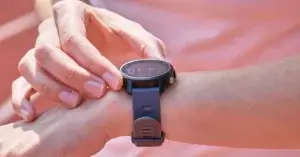Diabetes, often characterized by elevated blood sugar levels, also poses a risk of sudden drops in blood glucose, known as hypoglycemia, due to decreased levels of the counterbalancing hormone glucagon. This condition can be equally concerning for individuals with Diabetes, potentially leading to serious consequences like falls, seizures, or even cardiac arrest.
Integrating remote patient monitoring (RPM) technology can provide timely alerts and insights, aiding in the proactive management of blood sugar levels and reducing the risk of hypoglycemic episodes.
In this blog, we’ll explore the 7 signs of a sugar crash and how RPM can offer timely insights to proactively manage blood sugar levels and mitigate the risk of hypoglycemic episodes.
What is Hypoglycemia?
Hypoglycemia is defined by the American Diabetes Association (ADA) as a blood sugar level of < 70 mg/dL. The ADA classifies hypoglycemia into 3 levels:
- Level I: Measurable glucose concentration <70 mg/dL (3.9 mmol/L) but ≥54 mg/dL (3.0 mmol/L)
- Level II: Blood glucose concentration <54 mg/dL [3.0 mmol/L])
- Level III: A severe event characterized by altered mental and/or physical functioning that requires assistance from another person for recovery
The threshold blood glucose level of <70 mg/dL was chosen because below this value, people who do not have Diabetes already begin to experience symptoms of low blood sugar, while at blood glucose level <54 mg/dL, symptoms such as confusion and altered consciousness begin to emerge and require immediate treatment.
The frequency of hypoglycemia varies with several factors. People with Type 1 Diabetes experience, on average, two episodes of mild hypoglycemia per week. Those with Type 2 Diabetes may also experience low blood sugar levels, particularly those who are on insulin therapy or certain other drug classes (such as sulfonlyureas).
Some may get used to frequent episodes of low glucose and develop blunting of typical signs and symptoms, in a phenomenon called “Hypoglycemia Unawareness”, which can be particularly perilous. Since these signs and symptoms of hypoglycemia are protective and are the body’s way of alerting the patient to dangerously low blood glucose levels, recognizing these signs is crucial to averting the potential complications of hypoglycemia.
7 Common Signs/Symptoms of “Sugar Crash” or Hypoglycemia
Typical hypoglycemia signs and symptoms include (but are not limited to) the following:
- Feeling anxious: Symptoms may include nervousness and shaking or tremors, indicating the body’s stress response to low blood sugar levels.
- Weakness: Individuals may experience dizziness, lightheadedness, sleepiness, or blurred vision, exacerbating the feeling of fatigue during a sugar crash.
- Hunger or nausea: The body’s attempt to replenish glucose levels may manifest as increased hunger or feelings of nausea, contributing to discomfort.
- Skin manifestations: Sweating, chills, or pale skin may occur as the body regulates temperature during fluctuating blood sugar levels.
- Increased heart rate and palpitations: A sugar crash can elevate heart rate and cause palpitations, intensifying feelings of unease and discomfort.
- Increased blood pressure: The body may respond to low glucose levels with elevated blood pressure, adding to feelings of confusion or irritability as the brain struggles to function optimally.
- Confusion or irritability: As the brain contends with metabolic imbalance, individuals may experience confusion or irritability, further complicating their ability to manage the symptoms of hypoglycemia.
These signs and symptoms are often present together during episodes of hypoglycemia. Therefore, in people with Diabetes, these strongly suggest low blood glucose levels.
Risk Factors for Hypoglycemia
Conventional risk factors for hypoglycemia include:
- Medications: Patients who are on insulin therapy or sulfonylureas may experience hypoglycemia due to ill-timed or excessive doses
- Food intake: Decreased glucose intake either due to illness or fasting with inappropriate dosage of medications may lead to hypoglycemia
- Physical activity: During exercise, there is increased glucose utilization, leading to a drop in blood sugar levels. If medications or food intake are not adjusted accordingly, hypoglycemia may ensue
- Alcohol: There is decreased glucose production by the body after alcohol intake. This can lead to hypoglycemia especially during sessions of alcoholic binge drinking
- Increased insulin sensitivity: People with Diabetes who lose weight or improve their fitness can have increased insulin sensitivity. If medications are not adjusted accordingly, hypoglycemia can occur.
- Decreased insulin clearance: Advanced Diabetes can cause kidney failure, which in turn can lead to lower blood glucose levels and necessitates adjustment of medications, in some cases even discontinuation of medications for blood sugar control.
Tips to Avoid/Manage Hypoglycemia
Initial treatment of hypoglycemia requires intake of fast-acting carbohydrates. The ADA recommends the following “15-15” rule: Ingest 15 grams of carbohydrates and re-check in 15 minutes. If blood glucose is still < 70 mg/dL, ingest another 15 grams. These steps are repeated until blood glucose levels are > 70 mg/dL. Once at this level, eat a meal or snack to prevent further hypoglycemia. The carbohydrates may be in the form of the following:
- Glucose tablets
- Gel tube
- 4 ounces (1/2 cup) of juice or regular soda (not diet)
- 1 tablespoon of sugar, honey or corn syrup
- Hard candies, jellybeans or gumdrops
Avoid complex carbohydrates (ex. bananas, whole wheat bread or pasta, high fiber fruits) or food that contain carbs with fats (ex. chocolates) as they can slow absorption of glucose and will not quickly treat a low blood sugar level. Additionally, though injectable glucagon may be available and will be particularly helpful in people with severe hypoglycemia, calling 911 immediately for help in such cases may be the best course of action to take.
Good diabetes management is key to prevention of hypoglycemia episodes. Besides proper education and close coordination with health providers, regular and close monitoring of blood glucose levels is strongly recommended to avoid/prevent hypoglycemia. Frequent checking of blood glucose levels is ideal, such as before and after meals, before and after exercise, at bedtime, and in the early morning, especially if there is any change in physical activity or medications. This can be accomplished using capillary blood glucose monitors (SMBG) or continuous glucose monitors (CGM).
How DrKumo Remote Patient Monitoring Helps
This is where DrKumo Remote Patient Monitoring Technology for Diabetes Management comes in. With the rise of telehealth and RPM, people with diabetes can avail of RPM devices such as glucometers and CGM that are connected to a cloud-based platform where health providers can view patients’ glucose levels in real-time. This can aid patients in closely monitoring their blood glucose levels, minimizing the risk of hypoglycemia, and allowing better coordination with their health providers, who can make more timely recommendations and adjustments to medications. This can then lead to achieving glucose targets safely without frequent hypoglycemia.
Frequently Asked Questions
What role does glucagon play in managing hypoglycemia?
Glucagon is a hormone that acts as a counterbalance to insulin, helping to raise blood sugar levels when they drop too low. It stimulates the liver to release stored glucose into the bloodstream, thereby preventing or reversing hypoglycemia.
Are there any long-term consequences of frequent hypoglycemic episodes?
Yes, frequent episodes of hypoglycemia can lead to impaired awareness of low blood sugar levels, making it harder for individuals to recognize and respond to subsequent episodes. Additionally, severe or prolonged hypoglycemia can cause neurological damage and negatively impact cognitive function.
Can hypoglycemia occur in individuals without diabetes?
Yes, hypoglycemia can occur in individuals without diabetes, although it is less common. It can be caused by certain medications, excessive alcohol consumption, hormonal imbalances, or critical illnesses affecting liver function.
How does exercise affect blood sugar levels and the risk of hypoglycemia?
Physical activity can lower blood sugar levels by increasing glucose uptake into muscles for energy. However, exercise can also increase insulin sensitivity, leading to a greater risk of hypoglycemia, especially if insulin doses or carbohydrate intake are not adjusted accordingly.
What steps can family members or caregivers take to assist someone experiencing hypoglycemia?
Family members or caregivers should be educated on the signs and symptoms of hypoglycemia and how to respond effectively. They can assist by offering fast-acting carbohydrates, such as juice or glucose tablets, and helping the individual monitor their blood sugar levels closely.
Can RPM help prevent hypoglycemic episodes in individuals with diabetes?
Yes, RPM can help prevent hypoglycemic episodes by enabling continuous monitoring of blood glucose levels. By detecting trends and patterns in glucose readings, RPM devices can alert patients and healthcare providers to potential hypoglycemia, allowing for prompt interventions to avoid dangerous drops in blood sugar levels.
How does RPM technology integrate with other diabetes management strategies?
RPM technology integrates seamlessly with other diabetes management strategies, such as medication management, dietary modifications, and exercise routines. By providing comprehensive data on blood glucose levels and lifestyle factors, RPM enables healthcare providers to tailor treatment plans to individual needs and optimize diabetes management.
Takeaways
For people living with Diabetes, avoiding low blood glucose levels is just as important as controlling spikes in blood glucose. Achieving glucose targets without hypoglycemia is essential to optimal health outcomes, and DrKumo’s RPM platform of connected devices can play an important role in aiding patients with Diabetes manage their blood glucose levels effectively without complications.
Take control of your diabetes management with DrKumo’s Remote Patient Monitoring technology. Contact us today to learn how our RPM solutions can help you monitor your blood glucose levels effectively and achieve optimal health outcomes.









